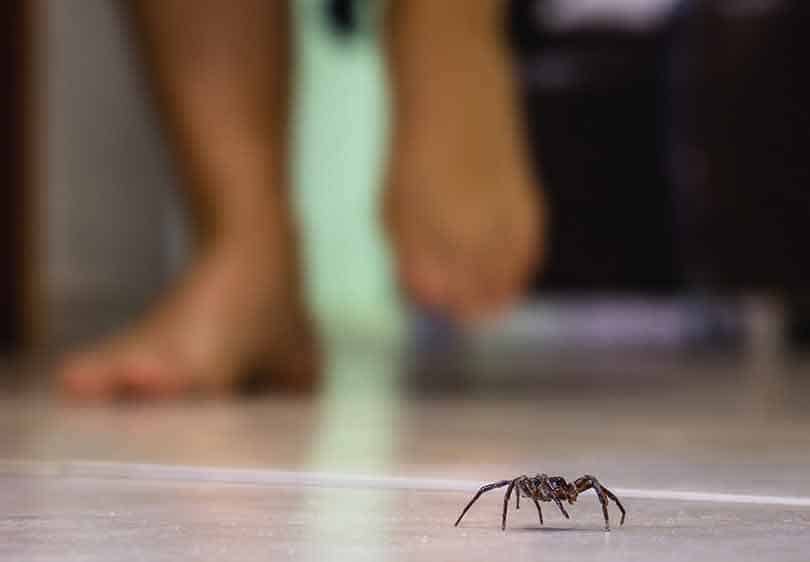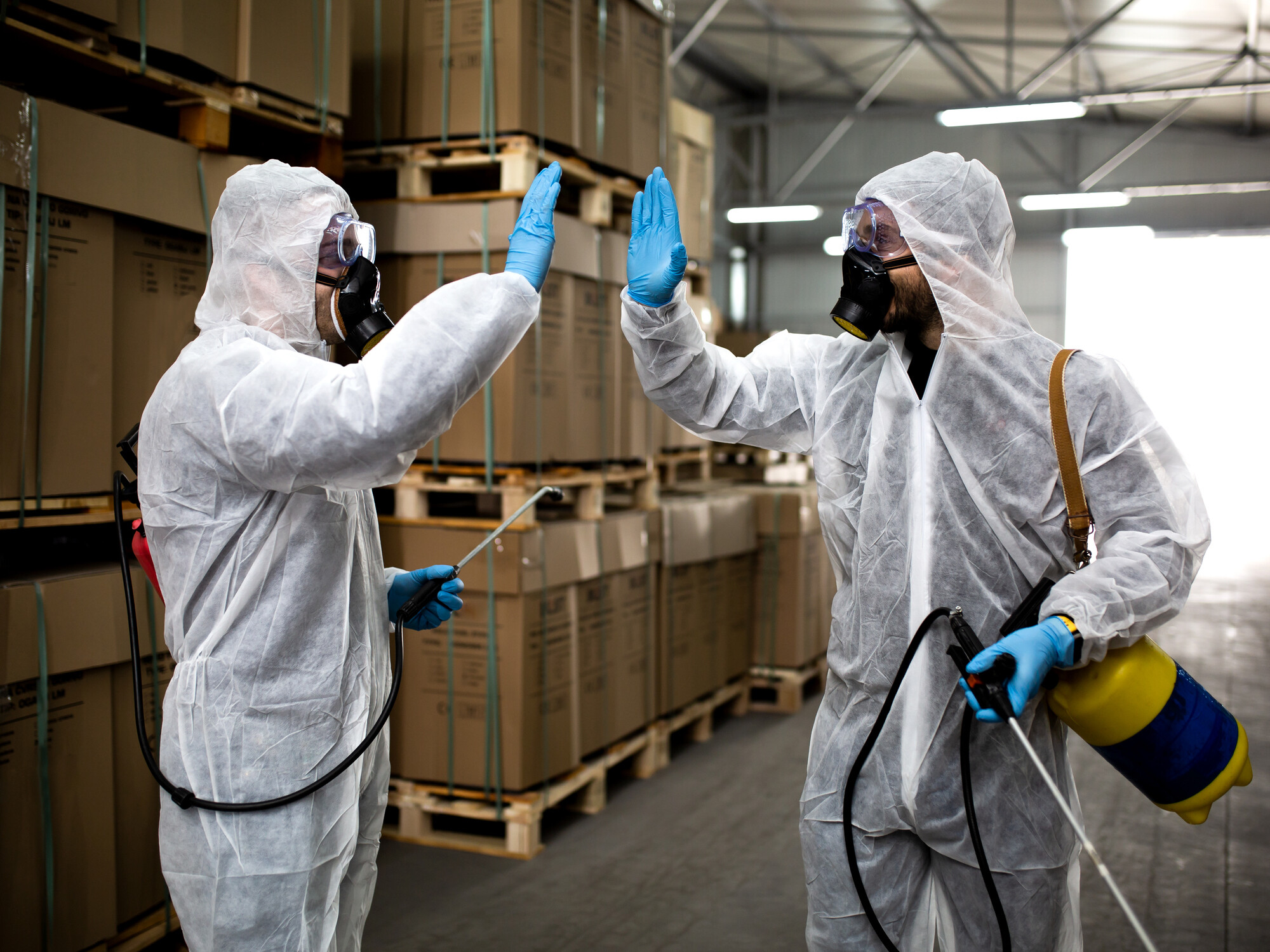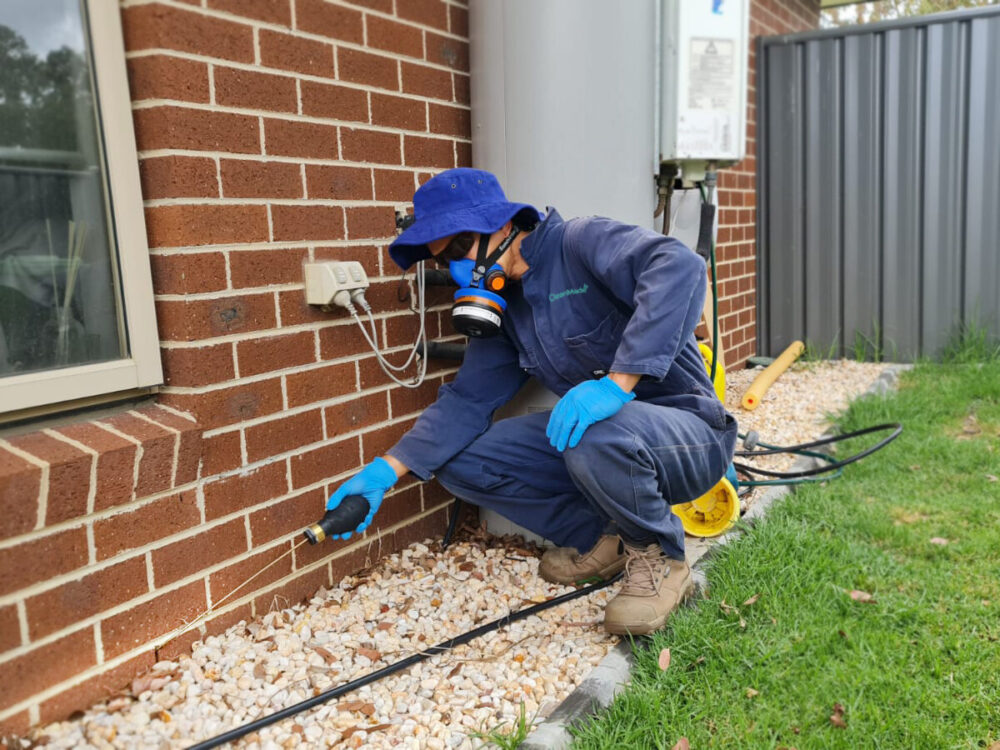Orem Pest Control Specialists: Guarding Your Property with Proven Techniques
Orem Pest Control Specialists: Guarding Your Property with Proven Techniques
Blog Article
Uncovering the Different Types of Pest Control Techniques and Their Applications
Pest control is a crucial aspect of maintaining a healthy and risk-free environment, whether it remain in property, commercial, or agricultural settings. Different methods have actually been created and improved for many years to effectively handle and alleviate pest infestations. From chemical approaches that target certain bugs to organic methods that harness natural predators, the world of insect control is diverse and huge. Understanding the various kinds of insect control techniques and their applications is vital for carrying out the most appropriate and sustainable services. Let's explore the intricacies of these approaches and how they can be effectively utilized to address pest-related obstacles.
Chemical Parasite Control Methods
Chemical parasite control strategies are widely used in agriculture and insect monitoring to efficiently remove or regulate pest problems. These techniques include the usage of chemical compounds, such as pesticides, chemicals, and herbicides, to remove or decrease pest populaces that position a threat to plants, animals, or human wellness. Pesticides, for instance, target details pests like weeds, rats, or pests, disrupting their life cycles or causing direct harm upon get in touch with. Herbicides are specifically created to manage unwanted greenery that takes on crops for sources and nutrients. Pesticides, on the other hand, are used to battle insect parasites that can harm plants and transfer diseases.
While chemical parasite control techniques can be very effective in handling parasite populaces, they additionally increase worries concerning potential ecological and wellness threats. Inappropriate usage or overuse of chemical pesticides can result in air pollution of soil, air, and water, harming non-target organisms and triggering long-lasting ecological damage. Furthermore, duplicated exposure to chemical deposits might pose health dangers to farmworkers, customers, and wild animals. It is necessary to follow safety and security guidelines, utilize integrated pest management approaches, and take into consideration different techniques to decrease the adverse effects of chemical insect control techniques.
Biological Parasite Control Techniques
 Biological insect control techniques use living organisms to decrease and manage bug populations in a sustainable and eco-friendly way. This method entails presenting natural predators, bloodsuckers, or microorganisms to manage insects without the need for artificial chemicals. One common technique is the launch of ladybugs to deal with aphids in gardens, as ladybugs are all-natural killers of these devastating insects. An additional example is using Bacillus thuringiensis (Bt), a germs that produces contaminants dangerous to particular insect larvae, to regulate caterpillars and insects.
Biological insect control techniques use living organisms to decrease and manage bug populations in a sustainable and eco-friendly way. This method entails presenting natural predators, bloodsuckers, or microorganisms to manage insects without the need for artificial chemicals. One common technique is the launch of ladybugs to deal with aphids in gardens, as ladybugs are all-natural killers of these devastating insects. An additional example is using Bacillus thuringiensis (Bt), a germs that produces contaminants dangerous to particular insect larvae, to regulate caterpillars and insects. 
Biological bug control approaches use a number of advantages over chemical approaches. Generally, organic parasite control approaches provide a all-natural and reliable choice to traditional chemical treatments, promoting a balanced community and healthier atmospheres.
Physical Parasite Control Approaches
Using physical methods to regulate pests involves the use of mechanical or non-chemical ways to take care of and minimize bug infestations effectively. One common physical pest control method is the setup of fencings, internet, or displays to obstruct parasites from entering specific locations.
Another physical approach is making use of traps, such as breeze traps for rats or pheromone catches for bugs. These catches aim to catch pests without posing any kind imp source of danger to human beings or the setting. In addition, physical control techniques can include strategies like handpicking bugs off plants, using vacuum tools to eliminate insects, or using heat therapies to remove bed insects and various other parasites in ravaged areas.
Integrated Insect Administration Strategies
Executing an alternative method to pest administration, Integrated Parasite Management (IPM) approaches aim to incorporate numerous efficient strategies to avoid and manage pest problems while lessening environmental influence and making certain lasting bug control techniques. IPM involves the combination of multiple control approaches such as organic control, cultural practices, mechanical control, and the careful use of chemicals.

In addition, IPM highlights the value of tracking and analyzing pest populaces to determine the most ideal control approaches. By implementing IPM strategies, pest control efforts end up being more targeted and reliable, reducing the risks connected with excessive chemical use and promoting lasting bug management options.
All-natural and Organic Pest Control Options

One preferred natural bug control technique is neem oil, obtained from the seeds of the neem tree, which acts as a repellent and interrupts the development and growth of bugs. Diatomaceous earth, a natural silica-based powder, is another efficient organic bug control choice that functions by drying out insects upon call. By navigate to this website integrating organic and natural bug control options into pest monitoring methods, people can effectively manage bugs while decreasing injury to the setting and advertising lasting techniques.
Conclusion
To conclude, different pest control strategies such go right here as chemical, organic, physical, incorporated pest management, and natural alternatives are readily available for efficiently managing bug invasions. Each approach has its own advantages and applications depending on the type of pest and the atmosphere. By comprehending the different sorts of pest control strategies and their applications, individuals can make informed choices on one of the most suitable approach to regulate pests and shield their property.
Chemical bug control techniques are widely made use of in agriculture and insect administration to effectively eliminate or manage pest problems - Orem Pest Control. Natural parasite control techniques entail utilizing organic control agents, such as killers or bloodsuckers, to take care of bug populaces. By including organic and natural parasite control choices into insect administration strategies, people can efficiently manage pests while reducing harm to the atmosphere and promoting lasting methods
In verdict, different bug control strategies such as chemical, organic, physical, integrated insect administration, and all-natural alternatives are readily available for efficiently managing pest problems. By comprehending the various kinds of pest control techniques and their applications, people can make educated decisions on the most ideal strategy to regulate parasites and secure their residential or commercial property.
Report this page